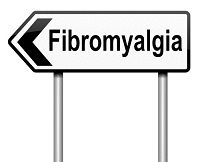Self-Questionnaire vs. Rheumatologist for Fibromyalgia Diagnosis
The Fibromyalgia Rapid Screening Tool (FiRST) can help physicians make the determination, but just how reliable is it?

Without a blood test or specific biomarker, diagnosing fibromyalgia can be a challenge. The Fibromyalgia Rapid Screening Tool (FiRST) can help physicians make the determination, but just how reliable is it?
The standard for diagnosing fibromyalgia is using the ACR 90 criteria along with a rheumatologist’s opinion. French researchers from Centre Hospitalier Universitaire (CHU) Gabriel-Montpied compared the efficacy of the FiRST against the standard method when it comes to detecting fibromyalgia in association with inflammatory rheumatic diseases.
FiRST is indicated for people who have been suffering from joint, muscle, or tendon pain for three months. The questionnaire consists of six statements and patients check either yes or no for each.
- I have pain all over my body.
- My pain is accompanied by a continuous and very unpleasant general fatigue.
- My pain feels like burns, electric shocks, or cramps.
- My pain is accompanied by other unusual sensations throughout my body such as pins and needles, tingling, or numbness.
- My pain is accompanied by other health problems such as digestive problems, urinary problems, headaches, or restless legs.
- My pain has a significant impact on my life, particularly on my sleep and my ability to concentrate, making me feel slower generally.
A total of 605 patients — 279 consulted for rheumatoid arthritis, 271 for spondyloarthritis, and 57 for connective tissue disease – completed FiRST at some point between September 2014 and April 2015.
- Related: Fibromyalgia, Neuropathy Pain Drug Tied to Birth Defects
The questionnaire found that fibromyalgia was present in 143 patients (24.4%) with other inflammatory rheumatic diseases.
“When assessed against ACR 90 criteria, FiRST had a sensitivity of 74.5%, a specificity of 80.4%, a positive predictive value of 26.6%, and a negative predictive value of 97.1%,” the authors confirmed in the journal Rheumatology.
FiRST had 75.8% sensitivity and 85.1% specificity when compared to the rheumatologist’s opinion. Specificity of the questionnaire varied based on the other inflammatory rheumatic diseases — 84.4% for rheumatoid arthritis, 80.2% for spondyloarthritis, and 59.6% for connective tissue disease. In addition, sensitivity was lower in those with spondyloarthritis than connective tissue disease (66% vs. 94.4%).
Although it performs less well in inflammatory rheumatic disease, FiRST’s opinion is close to that of the rheumatologist,” the team concluded.
Also on MD Magazine >>> Fibromyalgia Increases Risk of Stroke, Especially in Younger People